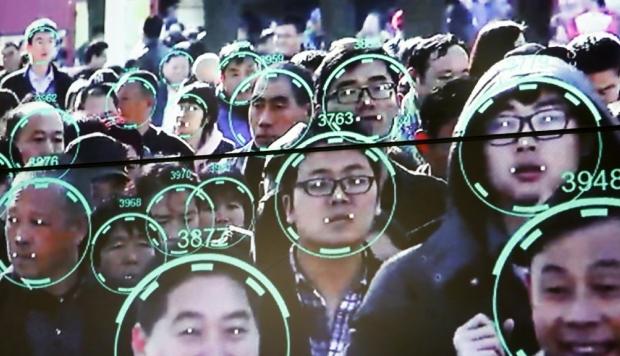China appears to be shying away from an incredibly efficient AI-powered crimefighting system – perhaps because since 2012 it’s busted over 8,700 government employees engaging in misconduct ranging from embezzlement, to abuse of power, to nepotism and more.
The system, dubbed “Zero Trust” was developed in partnership between the Chinese Communist Party’s internal monitoring institutions and the Chinese Academy of Sciences in order to “monitor, evaluate or intervene in the work and personal life of public servants,” according to SCMP‘s Stephen Chen.
According to state media, there were more than 50 million people on China’s government payroll in 2016, though analysts have put the figure at more than 64 million – slightly less than the population of Britain.
To turn this behemoth into a seamless operation befitting the information age, China has started adapting various types of sophisticated technology. The foreign ministry, for instance, is using machine learning to aid in risk assessment and decision making for China’s major investment projects overseas.
Beijing has been at the forefront of facial recognition technology, such as their “SkyNet” system deployed in over 16 provinces, cities and autonomous regions which can instantly scan faces and compare them to a database of criminal suspects at a speed of 3 billion times per second, according to People’s Daily. In Guizhou, the movement of every police officer is tracked in real time.
Meanwhile, China has gone to great lengths to ensure the fidelity of its government data – inking contracts with companies like ZTE to develop blockchain technology in order to prevent bad actors from modifying information.
In order to tie China’s monitoring apparatus together, “Zero Trust” can cross-reference over 150 protected databases across Chinese central and local governments – allowing the system to create sophisticated, multi-layered social relationship maps which can then be run through machine-learning systems in order to map out behaviors of government employees.
For example, the system will flag unusual bank account activity – such as a giant increase in savings, or the purchase of a car, “or bidding for a government contract under the name of an official or one of his family or friends,” notes SCMP.
“It can even call up satellite images, for instance, to investigate whether the government funding to build a road in a village ended up in the pocket of an official,” for example.
This was “particularly useful” in detecting suspicious property transfers, infrastructure construction, land acquisitions and house demolitions, a researcher said.
…
Once its suspicions have been raised it will calculate the chances of the action being corrupt. If the result exceeds a set marker, the authorities are alerted.
A computer scientist involved in the programme who asked not to be named said that at that stage a superior could then contact the person under scrutiny and perhaps help him avoid “going down the road of no return with further, bigger mistakes”. –SCMP
Beijing has experimented with Zero Trust in 30 counties and cities – just one percent of China’s total administrative area – and mostly in backwater counties that are relatively poor.
According to one researcher connected to Zero Trust, the idea for the test was to “avoid triggering large-scale resistance among bureaucrats,” particularly powerful ones, to the use of AI and tracking bots to monitor government.
Since 2012, the system has busted 8,721 government employees “engaging in misconduct such as embezzlement, abuse of power, misuse of government funds and nepotism.”
Most of them were given warnings or minor punishments, while a few were actually sentenced to prison.
And for some reason, some governments have decided to deactivate the system, according to the researchers – one of whom added that officials “may not feel quite comfortable with the new technology.”
Zhang Yi, an official at the Commission for Discipline Inspection of the Chinese Communist Party in Ningxiang, Hunan province, said his agency was one of the few still using the system.
“It is not easy … we are under enormous pressure,” he said, insisting that the main purpose of the programme was not to punish officials but to “save them” at an “early stage of corruption”.
“We just use the machine’s result as reference,” Zhang said. “We need to check and verify its validity. The machine cannot pick up the phone and call the person with a problem. The final decision is always made by humans.” –SCMP
Over 1.4 million government officials have reportedly been disciplined since Xi rose to power in 2012, according to the report. Unsurprisingly, government officials have been hesitant to provide data to the Zero Trust project – however “they usually comply with a bit of pressure,” according to SCMP‘s anonymous source.
Overall, China is growing increasingly reliant on AI for day-to-day operations. Last month, for example, a Shanghai court became the first in the country to utilize an AI assistant at a public hearing.
The machine, code-named “206”, has the ability to record conversations, show evidence such as surveillance camera footage when mentioned by lawyers, and compare testimonies to help judges spot discrepancies, the report said. –SCMP
The system is expected to reduce the likelihood of an incorrect verdict, according to one judge.
Meanwhile, who’s watching the watchers if they simply turn off their robot overlords?
via ZeroHedge News http://bit.ly/2t8oKuP Tyler Durden
